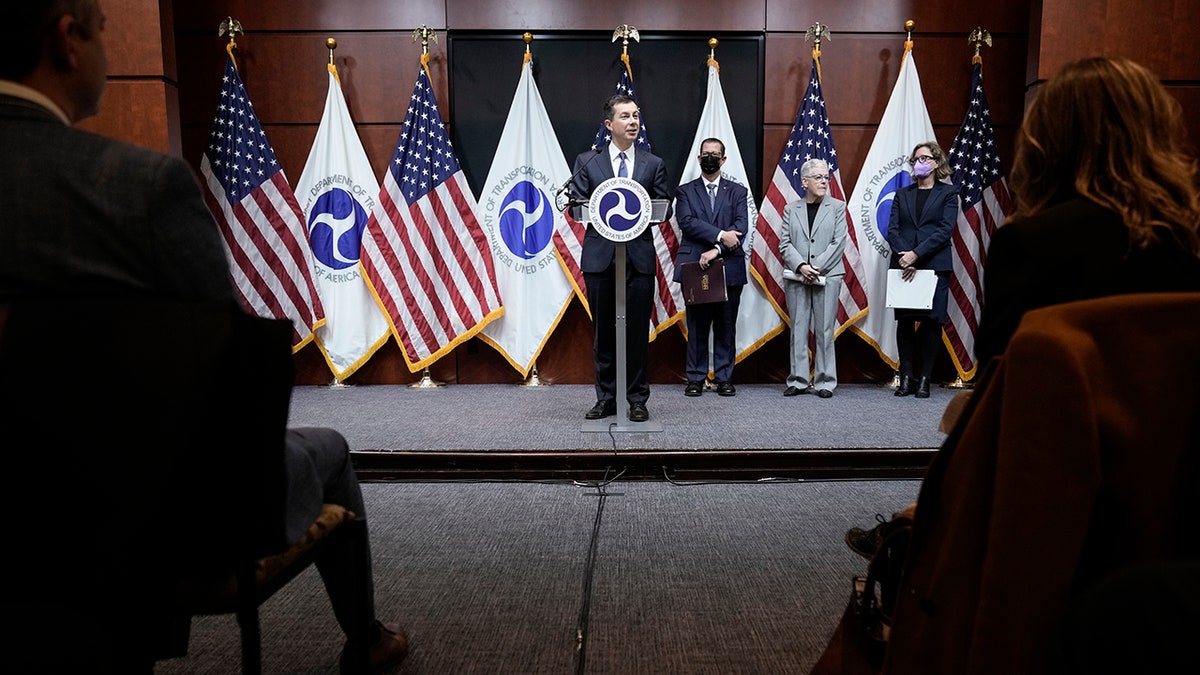Maria Bartiromo: 'Impossible' for Biden to argue others are to blame for gas prices
FOX Business host reacts to the president deflecting responsibility for pain at the pump on 'America's Newsroom.'
Automakers must reach a corporate average fuel economy [CAFE] of 49 mpg across their fleets by 2026 according to new regulations proposed on Friday by the National Highway Traffic Safety Administration.

Secretary of Transportation Pete Buttigieg said the new rules will save over 230 billion gallons of fuel through 2050. (Drew Angerer/Getty Images)
The move undoes a rollback of fuel economy standards enacted during President Trump’s administration and exceeds those established when President Obama was in office.
Fuel economy will need to increase by 8% in 2024 and 2025, and 10% in 2026 to reach the new level.
NHTSA said that drivers will save an average of $1,400 over the lifetime of a vehicle purchased in 2029, but did not offer an estimate on how much the price of a vehicle will increase.
Transportation Secretary Pete Buttigieg said the measure would save over 230 billion gallons of fuel through 2050.
THE MOST EFFICIENT GAS-POWERED VEHICLE MIGHT SURPRISE YOU
"Even if all of the oil we use in the USA were made in the USA, the price of it is still subject to powers and dynamics outside the USA," he said.

Cars and light trucks much reach an average of 40 mpg by 2026. (AP)
"Which means until we achieve a form of energy independence that is based on clean energy created here at home, American citizens will still be vulnerable to wild price hikes like what we're seeing right now," Buttigieg added.
The addition of hybrid and electric vehicles will help automakers comply with the rules, which have been harmonized with greenhouse gas emissions rules set by the EPA last December to help simplify compliance.
CLICK HERE TO GET THE FOX NEWS APP
John Bozzella, president and CEO of the Alliance for Automotive Innovation, which is the industry association that represents most automakers operating in the U.S., said, "We look forward to reviewing the final CAFE standards for MY24-26. That said, increased regulatory requirements for automakers will require supportive policies, as well as regulatory alignment with the EPA to ensure that standards can be attained when considering a host of factors, including safety, consumer preferences, improved fuel economy, and the transition to electrification."
The Associated Press contributed to this report

